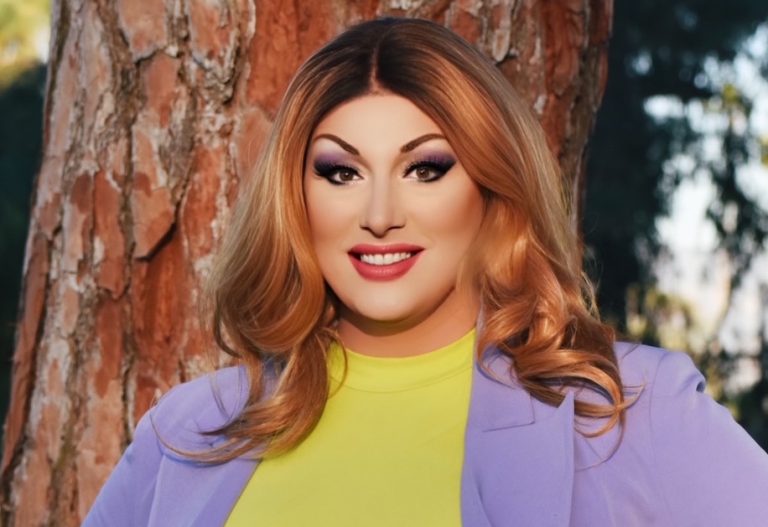Mental Health Conversations in the Latinx Community

For the Latinx/Hispanic community, mental health and mental illness are often stigmatized, whether that be seeing it as a weakness or simply as something that doesn’t exist. These stigmas have created a culture that forces people to suffer in silence. Tiktok, thankfully, has increased visibility for the traumatic issues of the world and given rise to treating mental health issues, reaching many Latinx and Hispanic communities using the platform.
There are many therapists and advocates of mental health who are becoming Tiktokers to spread awareness and let people know that they are not alone if they want to find help and clear up some stigmas about mental health. To get to know more about it I had a chat with Mara Sammartino LCSW, who works out of her own private practice.
How do you feel about how TikTok has spread more awareness surrounding mental health in Latinx communities?

Mara has taken a chance on Tiktok, sharing that it’s a really nice platform “Tiktok is a huge opportunity to get the message out… It has created more of a community for Latino therapists, we are not that many we are about 5% even in California, and it’s allowed us to make those connections across the country.” The platform has brought more “accessibility in terms of knowledge and helps to dismantle some of the stigmas we have”. She was often the face of the Latino community in her position being one of few therapists who are bilingual and bicultural.
The Latinx/Hispanic community is made up of diverse individuals. Sammartino has her own experience as a woman of color but that didn’t mean that she could understand and speak for everyone else’s because they are also BIPOC. What Tiktok does is create bridges for people to get connected everywhere across the country.
According to the National Alliance on Mental Health, 33% of Latino adults receive treatment each year for mental illness. Many things become barriers to receiving care such as language barriers, financial issues, misdiagnosis, and racism, but a huge challenge that has finally got recognition and momentum is a cultural stigma surrounding mental illness.
“A lot of my clients are first gen… and we are starting to think about having a family.. And Tiktok opens a conversation where we think aw crap I didn’t have (fill in personal trauma here)…”. Mara explains that there is a big shift from what our parents did and what we want to do now.
Now we are looking to therapy for healing to avoid generational cycles of trauma. We are looking back and reflecting on our childhoods, not to be ungrateful but to be mindfully saying ‘This isn’t what I liked growing up and now I want to change it for my child’.
Tiktoks opened conversations between parents and children and it might have helped you realize your own trauma. We are often told that trauma is one thing but that isn’t always the case. Our understanding of trauma is broader than before. While trauma can be physical or emotional among others, it can also result from lived realities such as “abandonment or the constant threat of abandonment may be from immigrant status”.
Latine households often share a mindset of silencing traumatic experiences and neglecting its impact, all while justifying these isolating experiences by countering the argument that the parents sacrificed a lot for the life their children can enjoy now. Mara Sammartino offers a hard validation that “you [parents] made choices to leave that doesn’t mean I owe you anything” and this still may not be your experience and that’s okay too.
Why do you think it’s important for people to find therapists who can culturally understand you?
“Well because you can be who you want to be and not be judged and there are things you don’t have to explain”. Mara shared that with such a diverse cultural range within the Latino population having different homelands, cultures, and experiences it can be really challenging to find the perfect therapist for you. “My experience is not the same as yours and your experience is not the same as mine and its important to find a therapist who is willing to learn and be humble about not having the same experience”.
She shared that her experience is shaped by the privileges and disadvantages she’s had “I’ve had to learn the privilege I hold… speaking English, being a U.S. citizen, being educated, growing up we didn’t see that privilege of being a U.S. citizen”. Mara Sammartino is in a position to learn and be humble as the only bilingual bicultural therapist in her area; she hopes to respectfully hold space for her clients even if she can’t share experiences with them.
Barriers in Mental Health

When she was a therapist in county mental health working with children, she found that even though the child might speak English because of school, they would see a white therapist that often couldn’t or wouldn’t take the time to consider the cultural climate in dealing with Latino clients.
“We have to understand that mental health is such a political game, especially when it comes to medical and insurance, that something as basic as permission (the informed consent) would be in English, how are their parents signing when they don’t even understand what they are signing, so that’s another reason my platform on TikTok is about education because I want the community to be able to hold the system accountable”. She can help and ask a psychiatrist to have the instructions for medication in Spanish because it’s their right, whether or not the child can speak English.
What are some common stigmas in the Latinx community that you hope to debunk or change with this increase in mental health awareness?
Source: Canva.com
There are many stigmas surrounding mental health in the Latinx community, including seeing it as a Westernized phenomenon called machismo, the idea that if I go to therapy then I’m crazy, and many more. Mara discussed a few of those with me, sharing how she tries to steer people away from these stigmas “I would use the stigma of being loco or crazy to have them understand that going to therapy was going to help them”. If they were questioning her authority, she would still show up for her clients, encouraging them to see it as showing up for themselves or their families.
“The other stigma would be medication, I challenge a lot of people on medication…I have a lot of Latino clients that I can see are struggling because maybe they don’t have supportive families or they don’t feel safe enough around their community… your brain has always been functioning at a depressive state so medication is going to give your brain a break its gonna allow you to breath…Medication is just a tool”.
At the end of the day we see a doctor to help us if we have issues such as diabetes or physical pain, why shouldn’t we get some help if we feel pain emotionally or mentally? Staying in therapy means you are making it a proactive part of your wellness and people like Mara Sammartino are helping their communities to realize taking a chance on their mental health can be very helpful.




